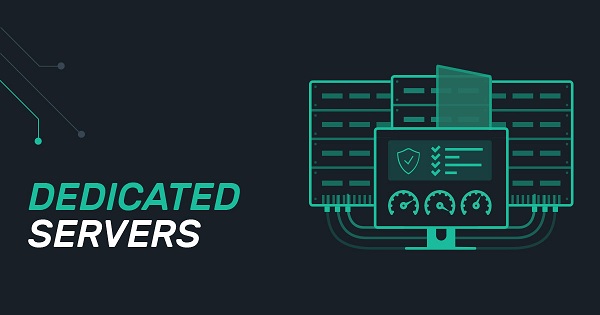User experience is among the most important metrics that determine whether a website succeeds or fails. For this reason, servers play a big part in the web game. The better the server, the better the user experience.
Let’s look at some server options and when and why it is critical to upgrade to a dedicated one.
Shared server – This type of server operates many different websites on it. Sharing its resources and maintenance price between them. It is great for startups, smaller businesses, blogs, and hosting resellers.
Dedicated server – On the other hand, we have a dedicated server operating under a single-tenant model. Offering you the entire control over your server. It provides you with the infrastructure to substantially improve load times, reduce lag and deliver a flawless user experience. But most importantly, a dedicated server is the most customizable server option in today’s market.
Now, after looking at these two server options, here are some worthy upgrade reasons.
Consistency
We mentioned shared hosting and its sharing capabilities. They can be both good and bad. Even though you are getting a better price and a shared maintenance plan, you are not getting a guarantee. What we mean by that is as follows.
In a given situation, when a website on the shared server experiences random high-traffic intervals, it can lead to a bad visitor experience. The resources of the shared server are hijacked in order to support the traffic flow. This can make other websites on the same server experience loading delays, lags, bugs, and in severe cases, downtime.
So, if you are working with a website that has high resource demands, switching from a shared server to a dedicated one is a must. You want your visitors to have the same user-friendly experience throughout each visit to your website.
Safety
Another equally significant factor when working with online users is security. Security breaches are a very real possibility if your website handles sensitive data. Choose a dedicated server rather than paying for anti-malware functions and other pricey safety programs.
By doing this, you handle user data in a secure environment without sharing any resources with other websites in your own private location. If you have a dedicated server, you can implement however many security layers you wish to have. This is not possible on a shared server.
Growth
We should also take into consideration website growth. Websites frequently develop naturally as a result of innovation, creativity, consistency, quality, and shifting digital trends.
A strong infrastructure can handle sudden website traffic due to an increase in active visitors, and it will carry on operating normally. As a website increases its size and traffic, a dedicated server becomes a building block for anticipated expansion. You will never be caught off guard when we talk about random high-traffic surges.
Who needs a dedicated server?
Medium-sized to large businesses – Any business that handles a sizable and continuous user data flow will gain from having a dedicated server. Database core operations, supplies or inventory management, and numerous concurrent transactions are all supported by dedicated servers.
What they get – They get to control their whole environment and customize it to their own needs. Providers also offer few options when we talk about management and maintenance of the server. At any given moment, if the business is facing a sudden problem or an issue, they can ask the hosting provider to take care of their hosting issue.
Conclusion
In our daily lives, we mostly count on websites and programs, and users have even more alternatives than they can possibly use. In the cutthroat digital environment, only the fastest, most dependable, and also most secure websites and apps succeed. Dedicated servers are a crucial resource for keeping your website operating at peak efficiency seven days a week.
